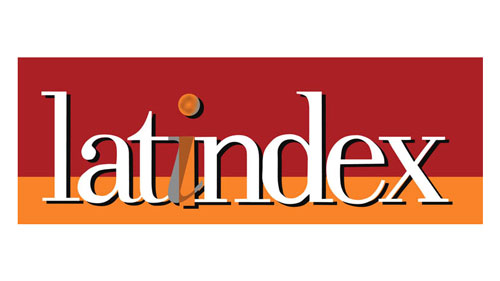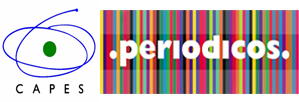Potential and implications of a peer review group for academic genres
DOI:
https://doi.org/10.26512/rhla.v23i2.53424Keywords:
Peer feedback, Academic literacies, Assessment for learning, FeedbackAbstract
This research’s goal was to investigate a Peer Review Group in Academic Genres (PRG) promoted by the authors; more specifically, the reported potential of actions taken to promote academic literacies and the reported implications of this promotion. The PRG took place online in the 2nd semester of 2022 as part of the actions of the Integrated Lab of Academic-Scientific Literacies of the State University of Londrina. By participant choice, we focused on the “academic paper” genre. Participants shared unfinished texts for peer review, providing written and oral feedback, which in turn was mediated by assessment sheets and checklists. The data included participants' responses to questionnaires carried out during the group (needs analysis, assessment, and self-assessment forms) and the transcribed recording of the last meeting. As for analytical procedures, we used provisional coding, which allows us to analyze the data based on theory-driven categories, namely those from academic literacies, peer review and assessment for learning. Our analyzes allowed us to understand that the participants developed, to some degree, their academic literacy and skills in providing and receiving feedback, contributing to achieving their objectives when participating in the group, as well as the general objective of the GRP itself.
References
BARTON, D. Literacy: an introduction to the ecology of written language. Londres: Blackwell, 1994.
BARTON, D.; HAMILTON, M. Local literacy: reading and writing in one community. London and New York: Routledge, 1998.
BLACK, P.; WILIAM, D. Assessment and classroom learning. Assessment in Education: principles, policy & practice, [s.l.], v. 5, n. 1, p. 7–74, 1998.
BRASIL. Ministério da Saúde. Sistema Plataforma Brasil (PlatBr). Versão 2.21. Brasília, DF: Ministério da Saúde, 2014. Disponível em: <https://plataformabrasil.saude.gov.br/login.jsf>.
BROOKHART, S. M. Feedback that fits. In: SCHERER, M. (ed.). Engaging the whole child: Reflections on best practices in learning, teaching, and leadership. Alexandria, USA: ASDC, 2008. p. 54-59.
CARLESS, D. Learning-oriented assessment: Conceptual bases and practical implications. Innovations in Education and Teaching International, Londres, v. 44, n. 1, p. 57–66, 2007.
CARLESS, D.; BOUD, D. The development of student feedback literacy: enabling uptake of feedback. Assessment and Evaluation in Higher Education, v. 43, n. 8, p. 1315-1325, 2018.
CARLESS, D.; WINSTONE, N. Teacher feedback literacy and its interplay with student feedback literacy. Teaching in Higher Education, v. 28, n. 1, p. 150-163, 2020.
COHEN, L.; MANION, L.; MORRISON, K. Research methods in education. London, UK: Routledge, 2018.
EGIDO, A. A.; REIS, S. Ética em pesquisas sobre leitura crítica e letramento crítico. Revista Brasileira de Iniciação Científica, [s.l.], v. 2, n. 3, p. 75–88, 2015.
FIAD, R. S. A escrita na universidade. Revista da ABRALIN, v. Eletrônico, n. Especial, 2ª parte, p. 357-369. 2011.
GEE, J. P. Social linguistics and literacies: ideology in discourses. 2ed. London/ Philadelphia: The Farmer Press, 1996.
HAMP-LYONS, L.; GREEN, A. Applying a concept model of learning-oriented language assessment to a large-scale speaking test. Report submitted to Cambridge Assessment (January). 2014. Disponível em: https://www.tc.columbia.edu/tccrisls/the-tccrisls-program/15Paper_Green_HampLyons.pdf. Acesso em: 12 set. 2022.
HOFFMANN, J. O jogo do contrário em avaliação. 2. ed. Porto Alegre: Mediação, 2005.
LEA, M. R.; STREET, B. V. Student writing in higher education: an academic literacies approach. Studies in Higher Education, n. 23 v. 2, p. 157-172, 1998.
LEA, M. R.; STREET, B. V. Writing as academic literacies: Understanding textual practices in higher education. In: CANDLIN, C. N.; HYLAND, K. (ed.). Writing: Texts, processes and practices. London: Longman, 1999. p. 62-81.
LEA, M. R.; STREET, B. V. O modelo de "letramentos acadêmicos": teoria e aplicações. Filol. Linguíst. Port., São Paulo, v. 16, n. 2, p.477-493, jul./dez. 2014.
LIU, N.; CARLESS, D. Peer feedback: the learning element of peer assessment. Teaching in Higher education, v. 11, n. 3, p. 279-290, 2006.
SALDAÑA, J. The coding manual for qualitative researchers. London/Thousand Oaks, California: Sage Publications, 2009.
SCHREIER, M. Qualitative Content Analysis in Practice. Thousand Oaks, California: SAGE, 2012.
SEIDE, M. S.; DURÃO, A. B. B. A correção de textos escolares na formação docente inicial. In: SELLA A. F.; RODRIQUEZ, R. J.; COSTA-HÜBES, T. da C. (org). Contextos escolares de fronteira: resultados de pesquisas interinstitucionais. Cascavel/Londrina: Edunioeste/UEL, 2016. p. 93-120.
STREET, B. V. Literacy in theory and practice. London: Cambridge University Press, 1984.
TEACHMAN, G.; LÉVESQUE, M. C.; KEBOA, M. T.; DANISH, B. A.; MASTORAKIS, K.; NORONHA, C.; SANTOS, R. P. dos; SINGH, H. K.; MACDONALD, M. E. Group peer review: Reflections on a model for teaching and learning qualitative inquiry. International Review of Qualitative Research, v. 11, n. 4, p. 452-466, 2018.
ZOCARATTO, B. L.; QUEVEDO-CAMARGO, G. Feedback on-line na formação inicial de professores de línguas: estado da arte. Estudos em Avaliação Educacional, v. 33, 2022.
Downloads
Published
Issue
Section
License
Copyright (c) 2024 Revista Horizontes de Linguistica Aplicada

This work is licensed under a Creative Commons Attribution-NonCommercial-NoDerivatives 4.0 International License.

A Revista Horizontes de Linguística Aplicada de http://seer.bce.unb.br/index.php/horizontesla/index é licenciado sob uma Licença Creative Commons Atribuição-Uso não-comercial-Vedada a criação de obras derivadas 3.0 Unported.
- Autores mantém os direitos autorais e concedem à revista o direito de primeira publicação, sendo o trabalho simultaneamente licenciado sob a Creative Commons Attribution License o que permite o compartilhamento do trabalho com reconhecimento da autoria do trabalho e publicação inicial nesta revista.
- Autores têm autorização para assumir contratos adicionais separadamente, para distribuição não exclusiva da versão do trabalho publicada nesta revista (ex.: publicar em repositório institucional ou como capítulo de livro), com reconhecimento de autoria e publicação inicial nesta revista.





